Go beyond the scoreboard
Get the latest on L.A.'s teams in the daily Sports Report newsletter.
You may occasionally receive promotional content from the Los Angeles Times.
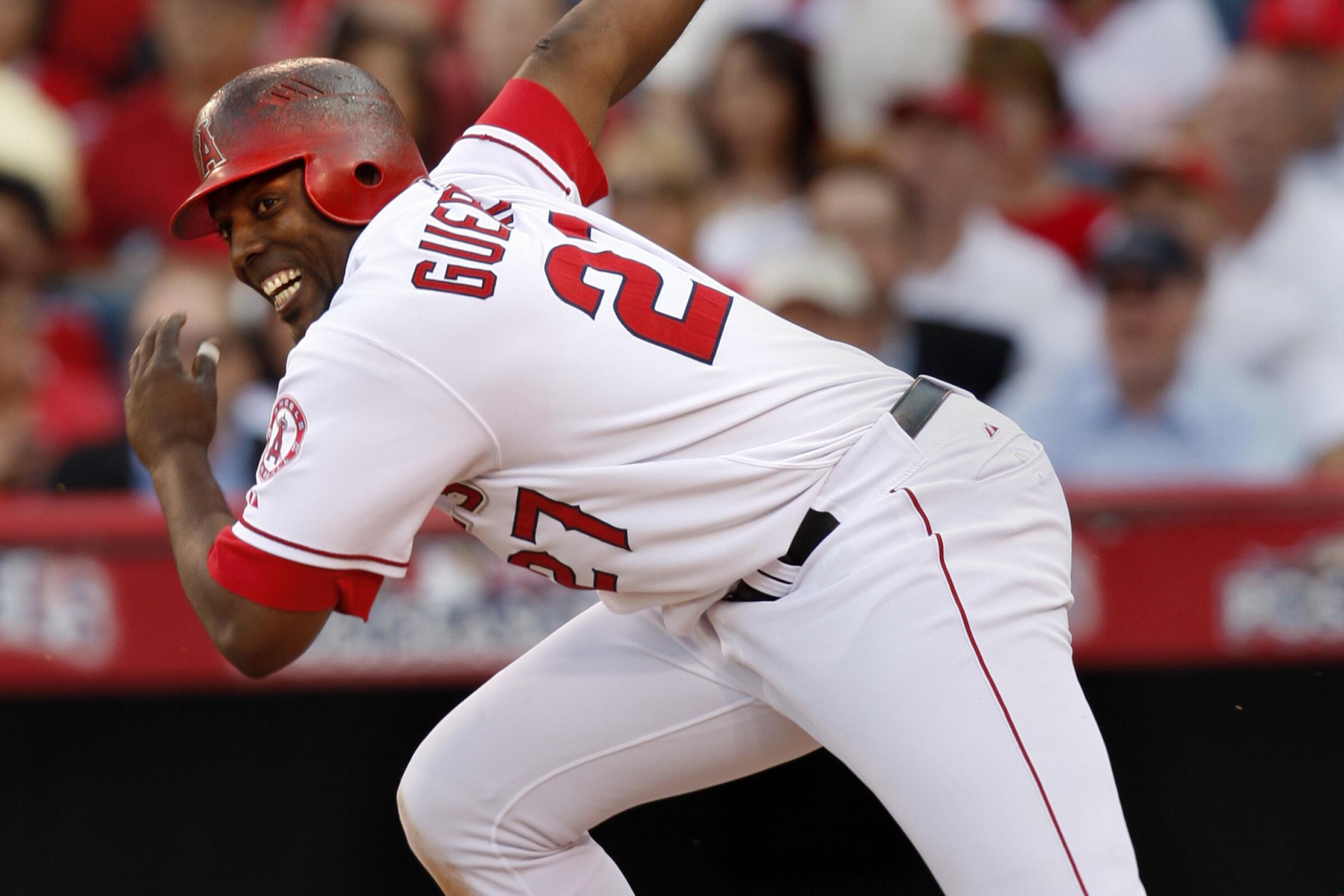
A look, in chronological order, at five of the most memorable opening days in Angels history:
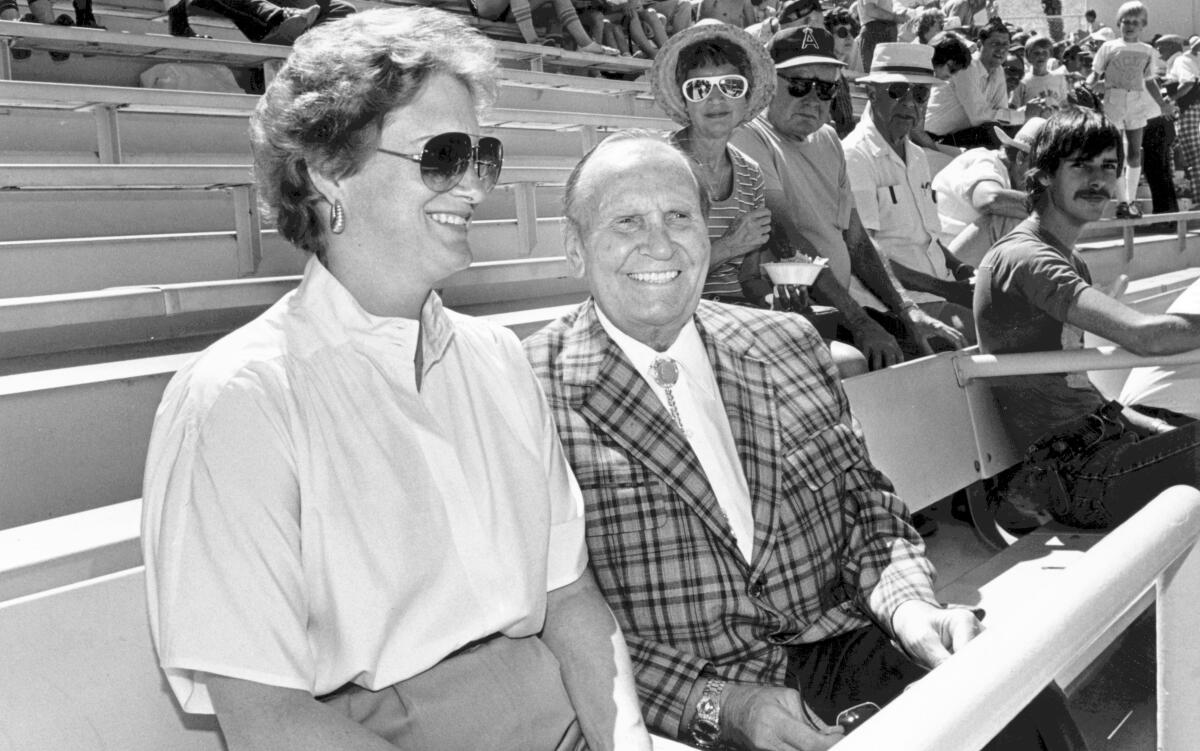
Before there was talk of curses, management and player flops and decades of futility, there was a cowboy singer-actor living out an old sports dream with one of Major League Baseball’s first expansion teams. Gene Autry, a superstar turned entrepreneur, purchased the rights to the Angels in December 1960, roughly four months before the start of the 1961 season.
A flurry of activity followed. Autry and his business partners had to hire a general manager, fill out a front office, select players in an expansion draft and complete numerous other tasks.
Their efforts were rewarded April 11, 1961, on a cold afternoon at Baltimore’s Memorial Stadium.
In the first inning of the franchise’s first game, first baseman Ted Kluszewski and left fielder Bob Cerv clobbered back-to-back two-out home runs off Orioles ace Milt Pappas. The Angels, not taken seriously by the rest of the baseball world, took a commanding 7-0 lead in the second inning against an Orioles team with World Series aspirations and won 7-2.
Right-hander Eli Grba, the Angels’ first choice in the expansion draft, pitched a complete game and gave the ball he used to secure the final out to Autry.
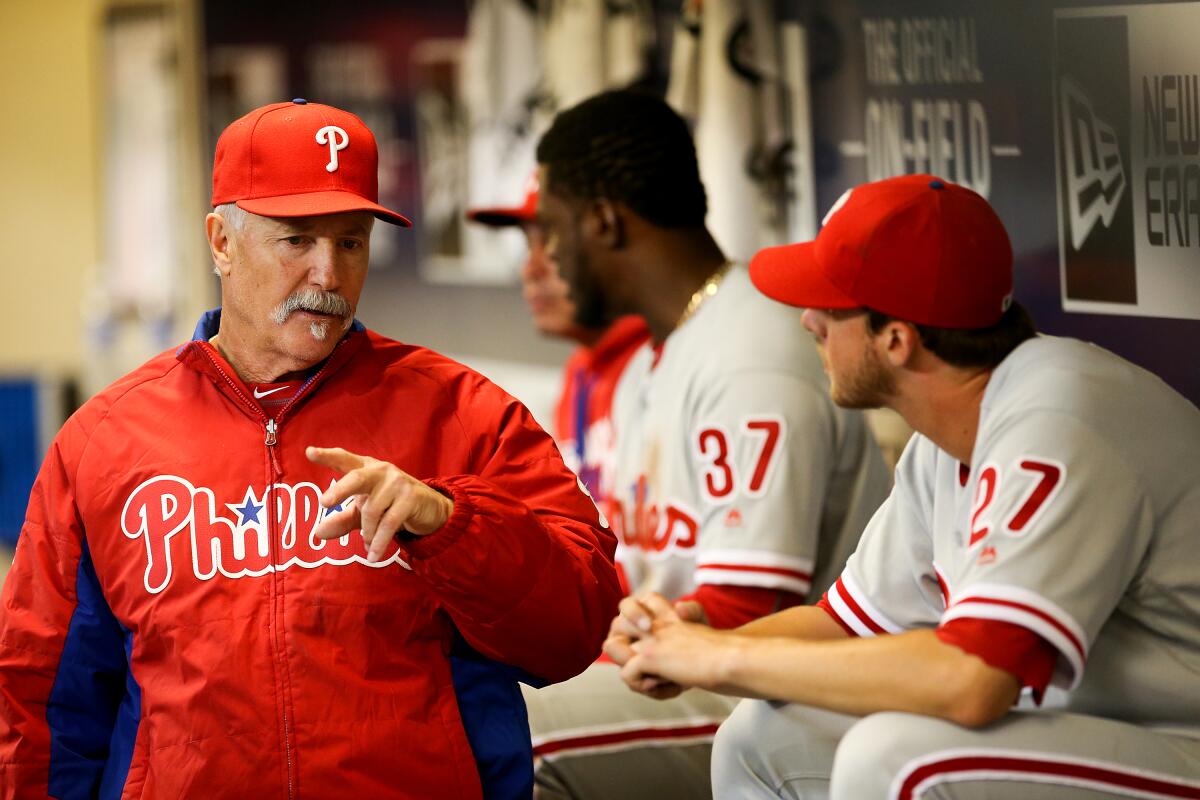
On the heels of a 75-loss season, the Angels introduced a new uniform, a new manager and a new lineup in 1989.
They also introduced another wrinkle: A fighting spirit.
After serving up a two-run homer in the ninth inning of a 9-2 loss on opening day, new Angels reliever Bob McClure plunked Chicago White Sox hitter Ivan Calderon with a fastball. Calderon flung his helmet and rushed McClure. Benches on both sides of Anaheim Stadium emptied. Angels manager Doug Rader was one of the first to join the fray.
The brawl earned McClure respect in the Angels clubhouse. He became a pivotal component of their bullpen, posting a 1.55 ERA in 48 games as the Angels surged to a 91-win season.
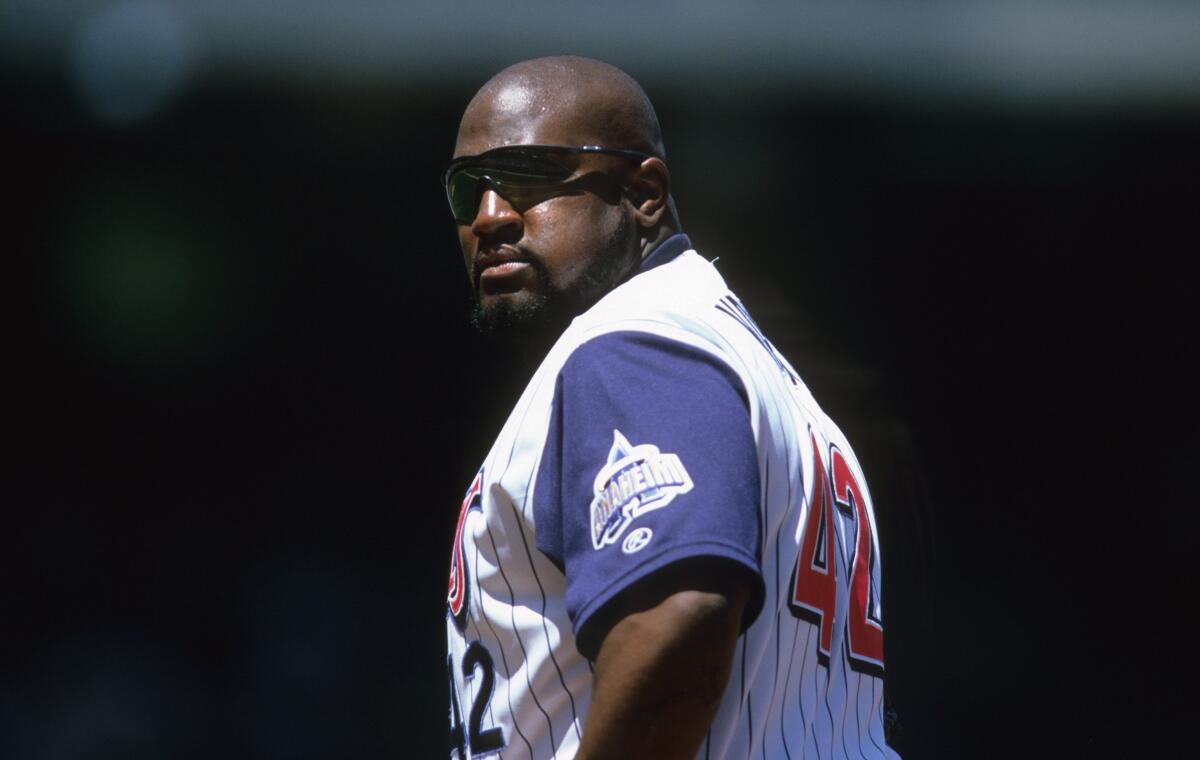
Sick of summers full of injuries and frustration, the Angels broke from their penny-pinching ways and awarded first baseman Mo Vaughn, one of baseball’s most consistent sluggers, a franchise-record six-year $80-million contract in November 1998.
Vaughn was supposed to lift the Angels, who had finished second in the American League West three times from 1995 to 1998, to the top.
Instead, Vaughn fell. In the 1999 season opener, he tumbled into the first base dugout at Edison Field in pursuit of a foul popup minutes into his Angels debut and sustained a severe ankle sprain. Injuries marked the remainder of his disappointing tenure in Anaheim, during which the Angels never sniffed the postseason.
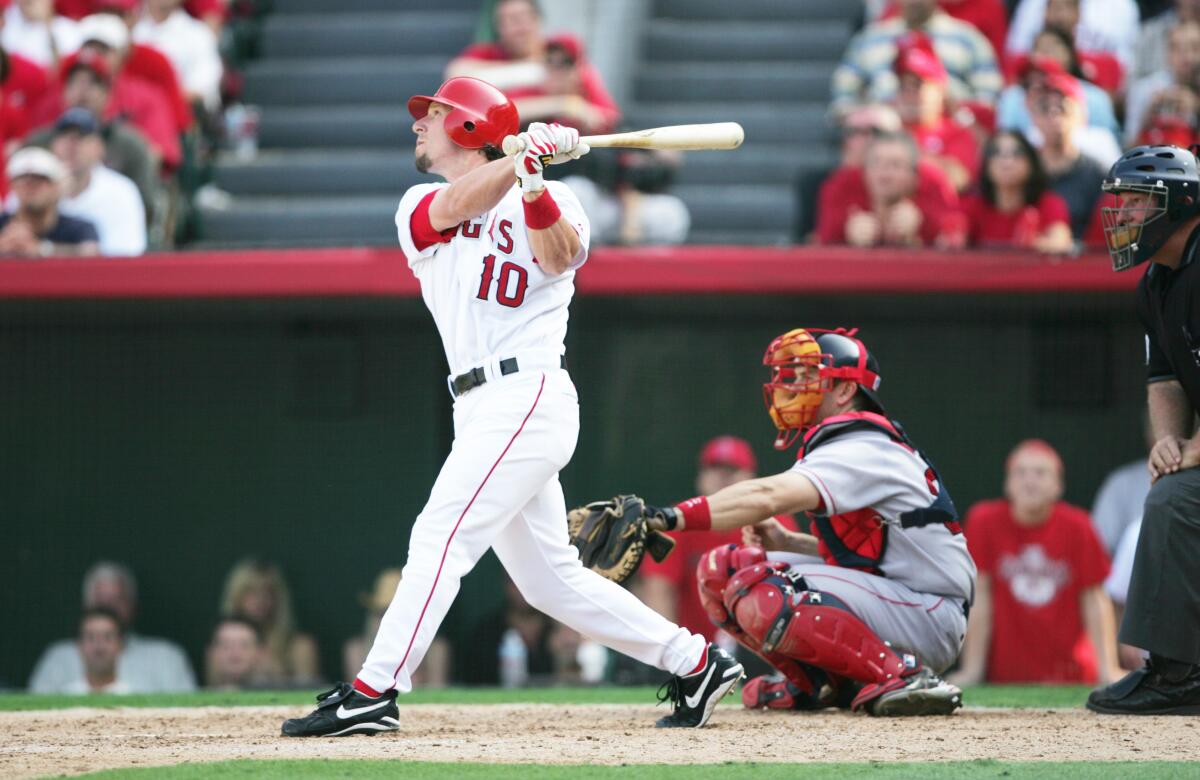
On opening day 2003, an oversized replica of the World Series trophy the Angels won in 2002 was placed in the outfield during batting practice, a championship flag was raised by outfielder Tim Salmon and owner Jackie Autry, and players were given standing ovations by a sellout crowd.
The Angels did nothing else to contribute to the frenzy. They snuffed out the fans’ fire with an uninspiring 6-3 loss to the Texas Rangers, in which World Series Game 7 hero John Lackey gave up five runs on eight hits and two walks over five innings.
The Angels finished the 2003 season 77-85, their fourth sub-.500 campaign in eight years. They might have had their most fun in mid-August when journeyman Adam Riggs took the field without noticing his sleeveless jersey read “A-N-G-E-E-S” across the front.
Still, 2003 marked the beginning of a new era in Anaheim: Billionaire Arte Moreno, who made his fortune by building a billboard advertising empire in his native Arizona, took control of the franchise. He bolstered the budget, vowing not to sacrifice on-field performance for the team’s bottom line.
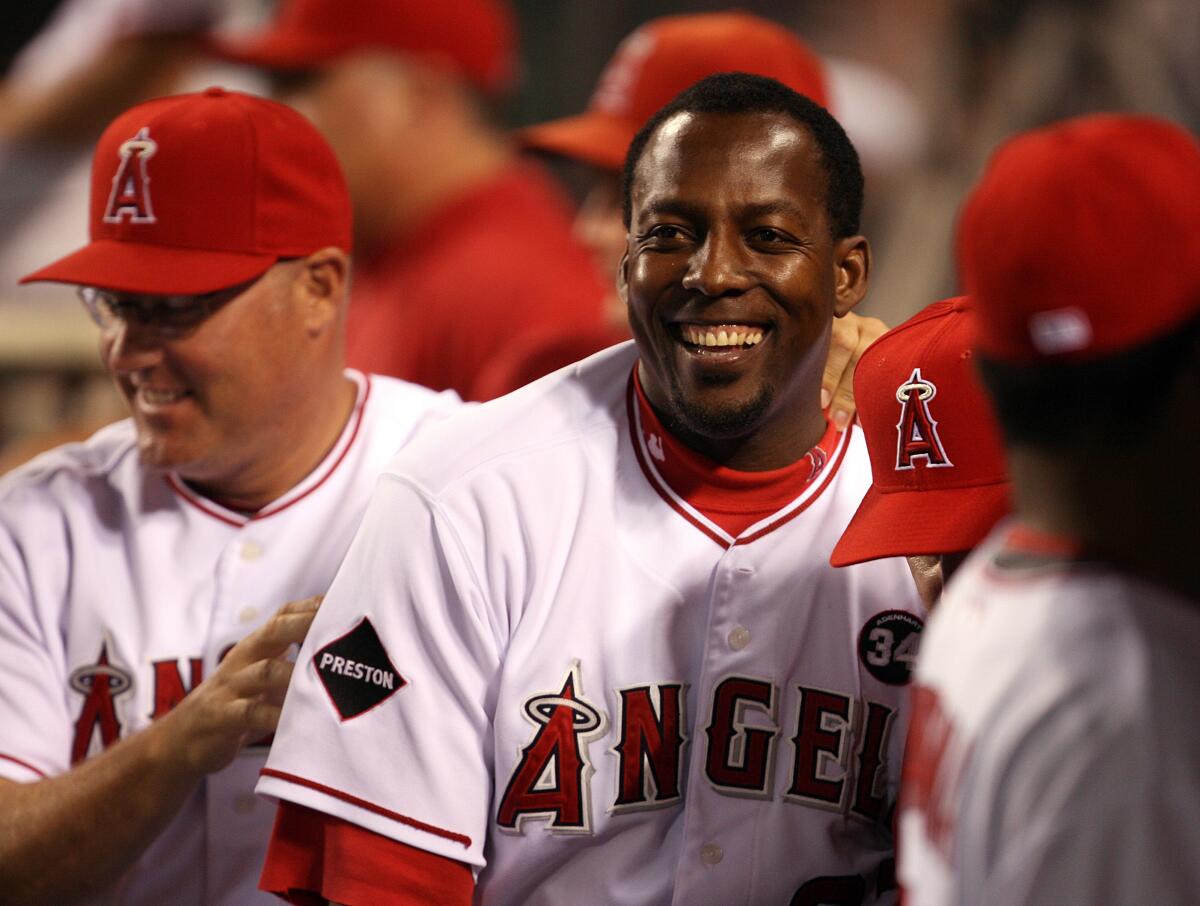
Moreno’s aggressiveness paid off April 6, 2004. Bartolo Colón and Vladimir Guerrero, prize free-agent acquisitions to whom Moreno guaranteed a combined $121 million, each assembled favorable performances in their debuts to deliver the Angels’ first opening-day win since 1999.
The 10-5 victory over the Seattle Mariners at Safeco Field featured Guerrero hitting the first of his 39 doubles that season — a campaign in which he won his first MVP award — but Troy Glaus’ two home runs and Colón’s brilliant six innings stole the show.
Colón pumped his 98-mph fastball for six innings, issued no walks and retired 14 of the final 15 batters he faced.
The burly right-hander did not always prove reliable that season. He had a 5.01 ERA by the end of it.
But the opening-day win set a tone for the rest of the team. The Angels outhit every AL team except the eventual champion Boston Red Sox, scored the second-most runs in the AL West, allowed the second-fewest runs per game, and captured their first division title since 1986.
On the mound for seven innings in the shutout victory that moved the Angels within one win of a playoff berth? Colón.
At the plate for a score-tying home run in the division clincher not 24 hours later? Guerrero.
Go beyond the scoreboard
Get the latest on L.A.'s teams in the daily Sports Report newsletter.
You may occasionally receive promotional content from the Los Angeles Times.